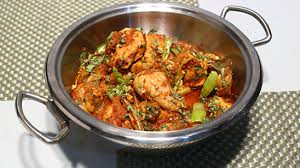Introduction
Massimo Bottura is an Italian chef who has garnered international acclaim for his innovative approach to cuisine. He is the chef-owner of Osteria Francescana, a three-Michelin-starred restaurant located in Modena, Italy. Bottura is widely regarded as one of the greatest chefs of his generation, and his unique culinary style has inspired a new generation of chefs to push the boundaries of traditional cuisine.
In this article, we will take a deep dive into the life and career of Massimo Bottura. We will explore his early years, his journey to becoming a world-renowned chef, his culinary philosophy, and his impact on the world of gastronomy.
Early Life and Education
Massimo Bottura was born on September 30, 1962, in Modena, a city in the Emilia-Romagna region of Italy. He grew up in a family that was deeply passionate about food, and his mother and grandmother were both excellent cooks. Bottura developed a love of food from an early age and would often help his mother and grandmother in the kitchen.
After completing high school, Bottura studied law at the University of Modena. However, he soon realized that his true passion lay in the culinary arts. He dropped out of law school and enrolled in a cooking school in Italy. He then worked as an apprentice in several restaurants, including Trattoria del Campazzo and Antica Osteria del Ponte.
Career in the Culinary Industry
In 1986, Bottura opened his first restaurant, Trattoria del Campazzo, in Modena. The restaurant was a modest affair, serving traditional Italian cuisine. However, it was a success, and Bottura soon decided to pursue his dream of opening a more ambitious restaurant.
In 1995, Bottura and his wife Lara Gilmore opened Osteria Francescana in Modena. The restaurant was named after Bottura’s mentor, chef Francesco Boni, and was located in a historic building in the heart of Modena. Osteria Francescana was initially a small, rustic restaurant that served traditional Italian dishes. However, Bottura soon began to experiment with new flavors and techniques, incorporating avant-garde ideas into his cooking.
Bottura’s culinary philosophy was heavily influenced by the Slow Food movement, which promotes the use of local, sustainable, and traditional ingredients. He also drew inspiration from the art world, and many of his dishes were inspired by famous works of art.
In 2002, Bottura received his first Michelin star for Osteria Francescana. This was followed by a second star in 2006, and a third star in 2011. Osteria Francescana is now widely regarded as one of the best restaurants in the world, and Bottura is considered to be one of the most innovative chefs of his generation.
Culinary Philosophy
Bottura’s culinary philosophy is based on a deep respect for tradition and a willingness to challenge it. He believes that food should tell a story, and that the best dishes are those that have a strong emotional connection to the people who prepare and eat them.
Bottura is also passionate about using local, sustainable ingredients, and he works closely with farmers and producers in the Emilia-Romagna region to source the best possible ingredients for his dishes. He believes that food should be a reflection of the local culture and environment, and that by supporting local farmers and producers, he can help to preserve traditional foodways and promote sustainable agriculture.

































